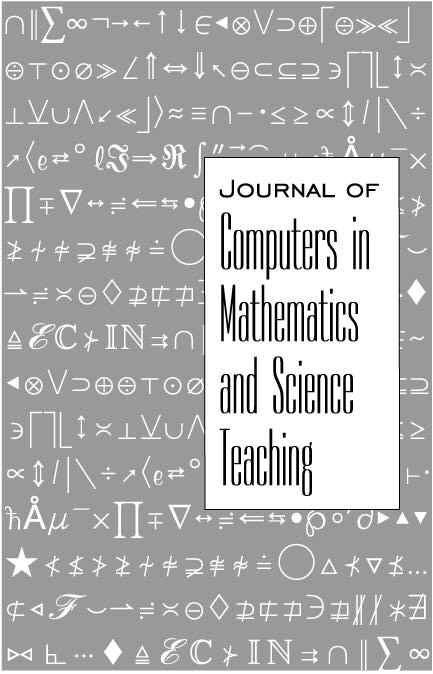
The Effect of Previous Software Development Experience on Understanding the Object-Oriented Paradigm
Article
Helen Sharp, City UniversityNorthampton Square, United Kingdom ; Jacqui Griffyth, Advanced Information Technology, United Kingdom
JCMST Volume 18, Number 3, ISSN 0731-9258 Publisher: Association for the Advancement of Computing in Education (AACE), Waynesville, NC USA
Abstract
This paper discusses results of a survey to gain insight into the relationship between the acquisition of Object Technology (OT) concepts and previous software development experience. A survey of professional software engineers who had just completed a postgraduate OT course was undertaken, eliciting data about their previous experience of software development, and their perception of the difficulty of course topics and the level of understanding they attained. Five hundred and ten responses were received over a two-year period. These were analysed to establish which course topics were the hardest and the easiest, and any correlation between various dimensions of previous experience and the successful acquisition of OT concepts. The results indicate that the fundamental concepts of OT and the management of OT projects are not difficult to understand, while analysis and design topics are harder. In addition, experience of "traditional" structured and procedural approaches to development have a significant positive transfer effect which outweighs the effect of any object-oriented or object-oriented-related experience, and is substantially more helpful than having no development experience at all.
Citation
Sharp, H. & Griffyth, J. (1999). The Effect of Previous Software Development Experience on Understanding the Object-Oriented Paradigm. Journal of Computers in Mathematics and Science Teaching, 18(3), 245-265. Charlottesville, VA: Association for the Advancement of Computing in Education (AACE). Retrieved August 11, 2024 from https://www.learntechlib.org/primary/p/8828/.
© 1999 Association for the Advancement of Computing in Education (AACE)
Keywords
References
View References & Citations Map- Chatel, S., Detienne, F., & Borne, I. (1992). Transfer among programming languages: An assessment of various indicators. Fifth Workshop of the Psychology of Programming Interest Group, PPIG5, Paris.
- Cook, S. (1994). Analysis, design, programming: What’s the difference? In A.J.O’Callaghan & M. Leigh (Eds), Object Technology Transfer, Alfred Waller, 55-63.
- Cox, B.J. (1990). There is a silver bullet, Byte Magazine, October pp 209-218.
- Detienne, F. (1995) Design strategies and knowledge in object-oriented programming: Effects of experience, Human-Computer Interaction, 10, 129-169.
- Greene, J., & D’Oliveira, M. (1982). Learning to use statistical tests in psychology, Open University Press, UK.
- Kant, E., & Newell, A. (1984). Problem solving techniques for the design of algorithms. Information Processing and Management, 20, pp. 97-118.
- Lilly, S. (1993). The structure of software revolutions (and the difficulty of teaching them), Object Magazine, September-October, 77-79.
- Pennington, N., Lee, A.Y., & Rehder, B. (1995). Cognitive activities and levels of abstraction in procedural and object-oriented design, HumanComputer Interaction, 10, 171-226.
- Rist, R. (1996). System structure and design. In W.D. Gray & D.A. BoehmDavis (Eds), Empirical Studies of Programming: 6th Workshop, Ablex Publishing, Norwood NJ, 163-194.
- Rist, R. (1986). Plans in programming: Definition, demonstration, and development. In E. Soloway & S. Iyengar (Eds.), Empirical studies of programmers: First workshop. Norwood, NJ: Ablex.
- Sackman, H., Erikson, W., & Grant, E.E. (1968). Exploratory experimentation studies comparing on-line and off-line programming performance. 262 Sharp and Griffyth
- Scholtz, J., & Wiedenbeck, S. (1990). Learning to program in another language. Proceedings of INTERACT ’90, pp. 925-930. Amsterdam:
- Sharp, H.C. (1994). What do programmers need to become object-oriented? In A.J.O’Callaghan & M. Leigh (Eds.), Object Technology Transfer. Alfred Waller, 65-71.
- Sharp, H.C., & Griffyth, J. (1998). Acquiring object technology concepts: The role of previous software development experience, Technical report TR98/14, Computing Department, the Open University:UK.
- Sharp, H.C., & Newton, M. (1996). Developing a course in object technology. In A.J.O’Callaghan (Ed.), Practical Experiences of Object Technology, UNICOM, pp 275–286.
- Sheetz, S.D., & Tegarden, D.P. (1996). Perceptual complexity of objectoriented systems: a student view, Object Oriented Systems, 3, 165-195.
- Sternberg, F. (1994). Accelerated learning of objects, Object Magazine, May, 57-64. Acknowledgements The work reported here was supported by the Board of the CCI Programme in the Computing Department at The Open University. Notes
These references have been extracted automatically and may have some errors. Signed in users can suggest corrections to these mistakes.
Suggest Corrections to References